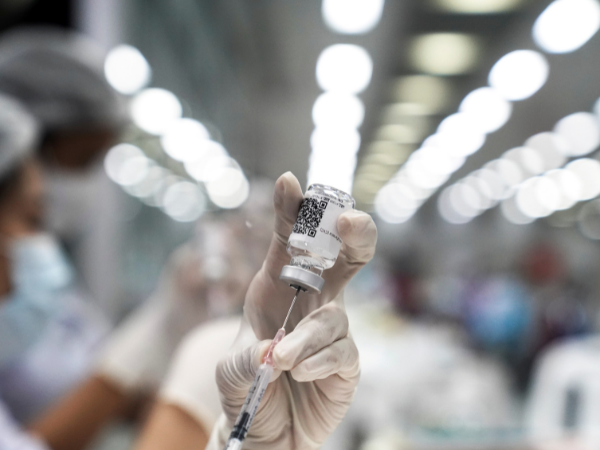US employers wrestle with COVID vaccine requirements in fiasco
America’s largest garlic farm needs 1,000 workers to harvest its annual crop, but faces an unexpected hurdle in this year’s recruitment drive: it now must document and track the COVID-19 vaccine status of these seasonal laborers.
Employers in California’s Santa Clara County, including Christopher Ranch, are required as of June 1 to ascertain if their workers have been vaccinated and check in every 14 days on those who say they have not or who decline to answer.
The timing of the order, in the middle of the busy harvest season, couldn’t be worse.
Ken Christopher, the farm’s executive vice president, said the company has to develop a system to check who has been vaccinated while observing privacy laws and monitoring workers’ adherence to safety protocols and testing.
“If the government wants to mandate (a vaccine), that’s one thing,” Christopher said. “But then requiring us to police it, that feels very unconventional.”
Workers in the Silicon Valley county who aren’t vaccinated or refuse to reveal their status to their employer must remain masked and should follow other protocols, such as limiting long-distance work travel and submitting to regular COVID-19 testing.
Employment lawyers said companies are watching closely how rules play out nationally, as they look to bring workers back safely and to dispense with mask protocols. But doing so may require identifying those who got a COVID-19 shot with badges or bracelets, raising discrimination issues and complicating hiring in a tightening labor market as the pandemic eases.

A health worker prepares a dose of AstraZeneca COVID-19 vaccine against the coronavirus disease (COVID-19) at the Central Vaccination Center, inside the Bang Sue Grand Station, Thailand, June 21, 2021. REUTERS/Athit Perawongmetha
Several states, including California, Michigan and Oregon, have their own rules or guidance on documenting vaccination status for workers but they are generally less strict than in Santa Clara County.
In Montana, however, a recently enacted law discourages employers from asking about vaccination status because it could lead to discrimination claims, according to employment lawyers.
“It’s a hairball,” said Eric Hobbs, an employment attorney with Ogletree Deakins in Milwaukee. “It’s all very confusing.”
Christopher said he is considering a mask-free shift for vaccinated workers and another shift for workers who haven’t gotten their shot to avoid discrimination and tension.
But asking farm laborers about their vaccination status and entering their details in a database could hurt recruitment efforts, he said.
“It’s the additional information being offered to the government,” said Christopher. “The more layers added on top, the more uncomfortable they are in seeking jobs here.”
The U.S. workplace safety regulator, the Occupational Safety and Health Administration, or OSHA, has not provided clear guidance on the issue.
“We continue to let the employer make the determination how to properly do this for their workplace,” OSHA’s acting director, Jim Frederick, told Reuters.
SCARLET LETTER
The U.S. Centers for Disease Control and Prevention, which said last month that inoculated people can go without face coverings indoors in most places, has not addressed the thorny issue of how to establish whether someone has been vaccinated.
“What companies are debating right now, and we are too, is: is it necessary to specify on someone’s badge or wear something around their neck that, yes, they are vaccinated and therefore if they don’t have a mask on there’s nothing to worry about?” said Peter Hunt, vice president of brand protection and security at Flex Ltd, a product design and manufacturing company.
That troubles Alix Mayer, the president of the California chapter of Children’s Health Defense, which is skeptical of the vaccination effort.
Requiring employers to ask about inoculation status is in essence a vaccine mandate, she said, because the unvaccinated will have to wear masks which amount to a “scarlet letter.”
In Santa Clara County, ServiceNow Inc, a cloud computing platform developer, told Reuters it is marketing an app for workers to provide employers their vaccination status, and, if required, to document it.
In communications with its own employees, ServiceNow emphasizes it does not require vaccines to return to work and leaves it to employees to decide whether to reveal their vaccination status.
“We encourage you to share if you are comfortable doing so,” say the instructions.
The company does require masks to be worn in its offices, however.
Related Articles
Helen Cleary, director of the Phylmar Regulatory Roundtable, an environmental health and safety forum for large employers, said companies should be allowed to trust employees to follow mask rules rather than prove or disclose if they’ve been vaccinated.
“We trust employees to do a lot of things. We trust them not to steal from the till,” said Cleary. “We support the honor system, and think that could alleviate a lot of these issues.”
(Reporting by Tom Hals in Wilmington, Delaware, Stephen Nellis and Jane Lanhee Lee in San Francisco and Elizabeth Dilts in New York; Editing by Sonya Hepinstall)

